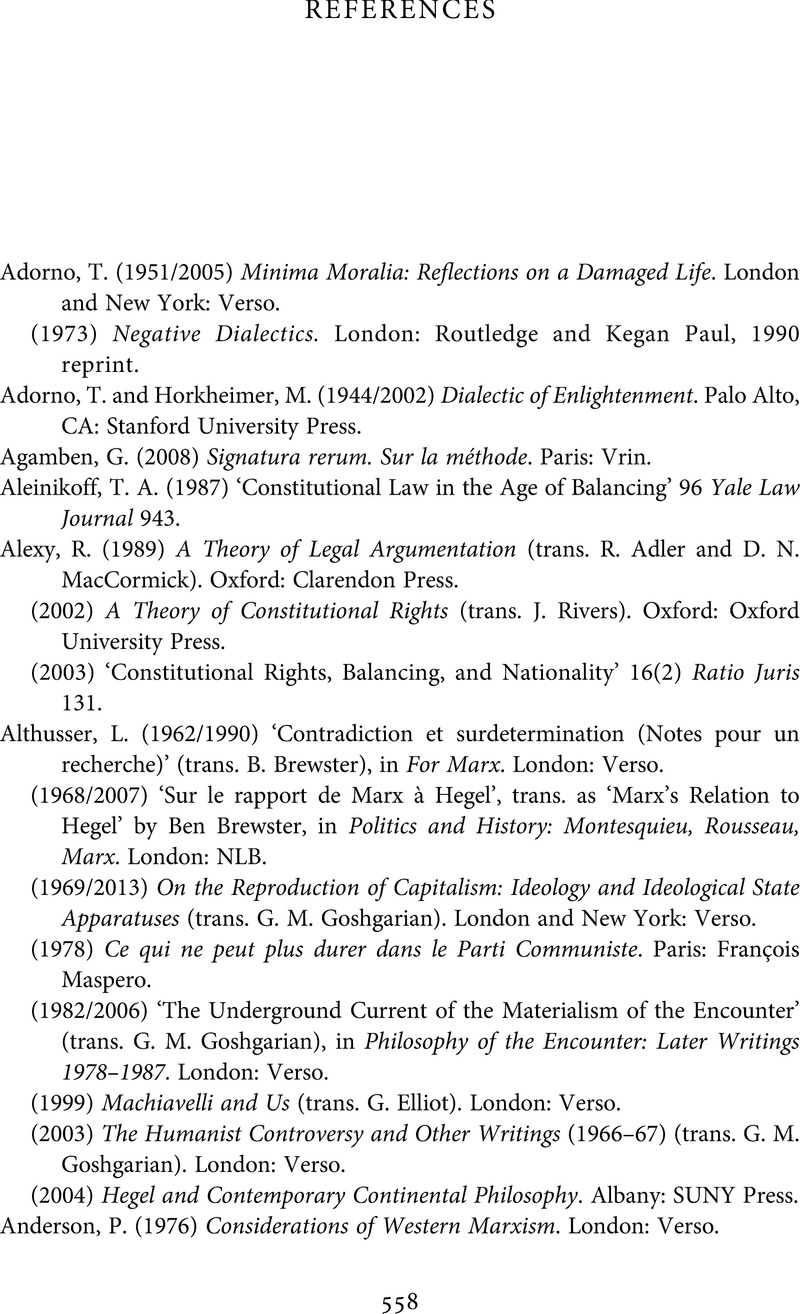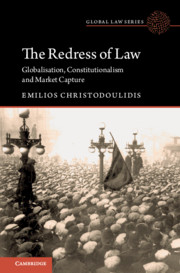Book contents
References
Published online by Cambridge University Press: 26 March 2021
Summary

- Type
- Chapter
- Information
- The Redress of LawGlobalisation, Constitutionalism and Market Capture, pp. 558 - 583Publisher: Cambridge University PressPrint publication year: 2021

